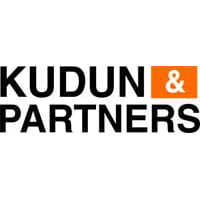
China 2019

Vice president and chief legal officer | Foxconn Industrial Internet





Chenyang Xie
Vice president and chief legal officer | Foxconn Industrial Internet
Vice president and general counsel | Foxconn Industrial Internet
Board member, vice president and general counsel | Tiens Group, China
Since joining Tiens Group, an international conglomerate that develops a diverse range of healthcare products, in 2012 Dr. Chenyang Xie has played an integral role in the company’s most significant...
First, the Wisconsin investment and Foxconn Industrial Internet’s (Fii) North American operation: As an extension of Fii’s global growth strategy, Fii-US is the launch point for North American initiatives based in Mount Pleasant, Wisconsin. In the brief period since inception, Fii has established relationships with multiple Wisconsin academic institutions and businesses, created a foundation for future growth, and laid the groundwork for world class innovation in artificial intelligence (AI). We, together with our US in-house colleagues, provide legal support to the US operation. Second, the acquisition of SunEdision while serving as general counsel at Golden Concord Group (GCL): The target assets were owned by SunEdision, one of the world’s largest renewable energy companies. GCL won the bid for assets and the entire acquisition was completed under the supervision of the US Court. The acquisition process faced a number of challenges including handling various objections from SunEdison’s suppliers, as well as disputes from a joint venture partner of SunEdison’s major subsidiary in Korea in relation to an IP license agreement. This transaction was one of the few transactions approved by CFIUS (Committee on Foreign Investment in the United States) in 2017. In
2018 and 2019, our legal team also spent a lot of time and energy on the post-acquisition integration.
Third, the Ethiopian and Djibouti oil and gas project while serving as general counsel at GCL: The project is an iconic one from China’s Belt and Road Initiative. GCL signed petroleum product sharing agreements with the Ethiopian government in 2013 to conduct oil and gas exploration, development and production, and build natural gas pipelines through Ethiopia and Djibouti as well as offshore LNG plants in Djibouti, covering a total area of 120,000 square kilometres in the Ogaden basin area of Ethiopia. In 2019, Poly-GCL Petroleum Group Holdings, a subsidiary of GCL Group, announced the construction of a 767 kilometre natural gas pipeline between Ethiopia and Djibouti. Our legal team provided full legal support to the integrated project.
More big companies will involve the legal role at the early stages of a deal and seek the legal counsel’s advice on strategy. In big cities in China, such as Beijing, Shanghai and Shenzhen, in-house counsel will enjoy a higher position and provide legal and business advice during negotiations and deals. Meanwhile, giant corporations like Fortune 500 companies and top 500 Chinese enterprises face pressure to be compliant with standards set forth in the US, the EU, China, and the others. That will also enhance the importance of legal functions.
In a multinational company, it’s important for in-house counsel to have a global vision and cultural sensitivity for a successful career. Besides, one needs to possess strong leadership and communication skills. The ability to build trust between leaders and colleagues of the company is fundamental. Trust and reliance grow from daily and face-to-face interactions within and outside the workplace.
As many have noticed, alternative legal service providers may change the way business is conducted in the legal industry. In addition, big four accounting firms are jumping into legal work. Also, there are AI firms targeting the market. Law firms have to make changes, or will be changed. What changes should be made by law firms? First is an attorney’s billing. With the economy’s downturn, legal budgets are tighter and tighter. Legal departments can’t spend a lot, and require a certainty on legal fees today. Hence, firms should be more proactive in providing alternative fee arrangements, fixed-fee retainer agreements, and make inventive pricing models the norm. Second, think and act like a businessman. The trend of the in-house role is to become partners of the business team. That is how we run the game. We need outside counsel to have business mind-sets along with legal thoughts. Finally, understand the industry. It is common practice that law firms shape themselves by their practice areas.
FOCUS ON… General counsel leadership beyond being “just a lawyer” Traditionally, for a majority of companies in mainland China, the role of the general counsel is very much still rooted in providing core legal services to the company. The world is changing, however. The role of general counsel is broadening, especially in huge multinational companies. General counsel today convey more to the table than just their legal knowledge. Let’s see a real case. In October 2015, United Continental Holdings (UAL) announced that its president and CEO, Oscar Munoz, was on medical leave following a heart attack. The UAL board of directors had named Brett J. Hart, currently United’s executive vice president and general counsel, as acting CEO. United would turn to their general counsel to keep the company steady during this time of crisis, rather than a more traditional choice such as CFO or COO. Take corporate social responsibility (CSR) as another example. CSR has never been a typical legal matter here in China, although it covers legal related topics. The International Organization for Standardization (ISO) released a set of voluntary standards that are meant to help companies implement CSR. From my point of view, CSR is a combination of four issues: commercial performance, rules and regulations, corporate governance and social and environmental goals. Failure to meet these may expose the business to a range of legal, reputational, and operational risks. Hence, logically general counsel should play a key role in the above matters by providing advice to C-suite officers and board members. In short, general counsel, as the name suggests, is to counsel the executive team and the board, not only in law, but other general topics as well. A supreme general counsel is a multi-functional member of the C-suite team while legal is just one label of him. As Harvard Business Review said, ‘The general counsel is now a core member of the top management team and offers advice not just on law and related matters but helps shape discussion and debate around business issues’.